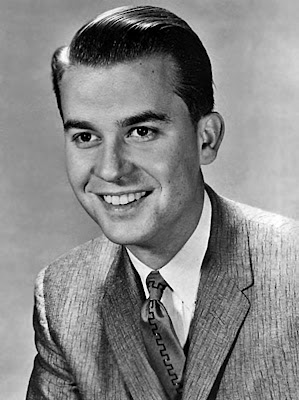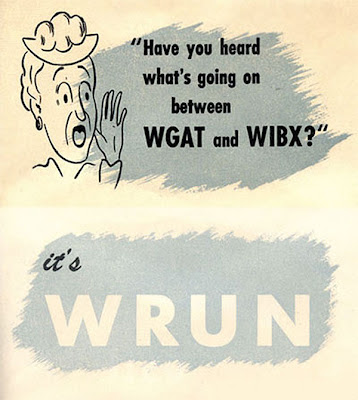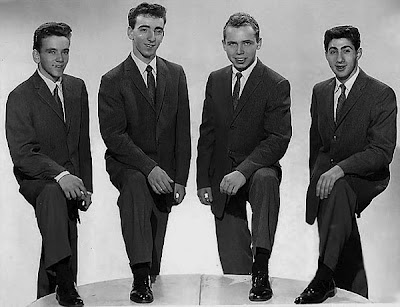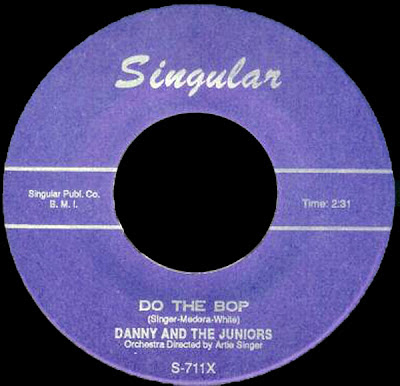Stay tuned for today’s New Oldie after the news…
The world lost a radio legend last week. The world’s oldest teenager, Dick Clark, was taken from us by a heart attack following a medical procedure at Saint John’s Health Center in Santa Monica, California on 18 April 2012. He was 82.
Richard Wagstaff (Dick) Clark started out working in the mail room at WRUN-AM 1150 in Rome-Utica, New York, the city where his mother, Julia Fuller Barnard, was born on 13 January 1897. Julia’s father, Charles Fuller Barnard, died on 28 October 1905 at the age of 45, leaving her 35 year old mother, Anna Mae, to raise eight year old Julia and her six brothers alone under difficult financial circumstances.
On 10 October 1924, Julia married Richard Augustus Clark while still living in Rome and the two moved to Mount Vernon, a northern suburb of New York City. In 1924, they gave birth to their first son, Brad, named after one of Julia’s brothers. On 30 November 1929, a month after the stock market crash of 1929, Dick Clark was born.
Dick Clark’s uncle Bradley was married to Margaret Kessinger, daughter of Albert Kessinger, owner and publisher of the Rome Sentinel newspaper. In 1941, following the death of her father, Margaret inherited the business and husband Bradley took over as publisher. Bradley, in partnership with one of his editors named Fritz Updike, started WRUN-AM (the initials of Rome-Utica News).
Dick’s brother Brad became a fighter pilot during World War II. He was shot down and killed on 23 December 1944 during the Battle of the Bulge in France, and is buried in Epinal, France.
In 1947, Dick Clark’s Uncle Bradley and Aunt Margaret invited his father Richard, who had fallen on hard times due to the depression, to return to the Rome-Utica area to sell advertising on their radio station. Richard quickly rose to the position of General Manager.
In the summer of 1949, while young Dick Clark was attending Syracuse University, his father hired him to do odd jobs around the radio station, including filling in for the announcers on the air. In 1951, after graduating with a degree in advertising with a minor in radio broadcasting, Dick Clark took a job reading the nightly news at WKTV-TV Channel 2 in Utica, replacing Robert Earle who became host of a TV game show called the GE College Bowl. It was at this station where Dick Clark hosted his first television music show, Cactus Dick and the Santa Fe Riders. Just a year later, Dick Clark would be in Philadelphia working as a disc jockey at WFIL-AM 560. There was a music program on WFIL-TV at the time called Bob Horn’s Bandstand and Dick Clark was asked to start a similar show on radio, and would also stand in occasionally for Bob Horn on his television show. On 9 July 1956, after Bob Horn was arrested and jailed for drunk driving, Dick Clark took over as permanent host of Bandstand.
On 5 August 1957, the ABC network picked up Bandstand for national distribution and it became known as American Bandstand. Dick Clark’s first national show featured an interview with Elvis Presley. The show eventually moved to Los Angeles in 1964.
In 1957, Arthur ‘Artie’ Singer asked a well-known talent agent named Nat Segall for some help with a song that he’d co-written with Johnny Madara and Dave White for Danny And The Juniors called Do The Bop. The song was interesting because it married the twelve-bar blues chord progression of early rock and roll with the 50s chord progression from Country music. Artie was working as vocal coach for the harmony quartet at the time. The group started in 1955 as the Juvenaires from John Bartram High School in Philadelphia and featured lead singer Danny Rapp, with first tenor Dave White, second tenor Frank Maffei, and baritone Joey ‘Terry’ Terranova. Just before they recorded Do The Bop, they’d changed their name to Danny And The Juniors.
Artie Singer and local disc jockey Larry Brown got a meeting with Dick Clark, who had now become extremely influential in the music business, and played a demo of the song for him. Dick sat still while he listened and when it finished he said, “I like it, but it’s the wrong title.” Artie was willing to do anything to turn his song into a hit record, so he asked Dick Clark what he thought they should call it. After thinking it over for a few seconds, Dick came up with a new title, At The Hop. Tony Mammarella, who had been sitting in on the meeting, liked the idea. The Bop was a passing dance craze at the time, but kids across the country were dancing at record hops every night. Artie agreed to change the lyrics, and Tony suggested that they let Dick Clark’s company publish the song. Artie agreed, not even knowing that Tony had a stake in the publishing company. Nat agreed to manage the group and asked Jerry Blavet to go on the road with them.
At The Hop, which was first published on the Singular label, moved to ABC Records for national distribution. However, a small run of the original demo recording, which pre-dated the ABC contract, was published on the Singular label after the song became a big hit. There aren’t many of these around, but they still turn up at record shows and online auction sites. It’s become a collector’s item worth hundreds of dollars, but most collectors still believe they are all bootleg pressings — which is NOT the case!
Here’s Do The Bop by Danny And The Juniors on Singular 711 (same as At The Hop) from 1957:
And here’s the flip side, another demo recording of Sometimes (When I’m All Alone):
Rock and roll is here to stay, and today you’ll find it’s alive and well on MusicMaster Oldies!




